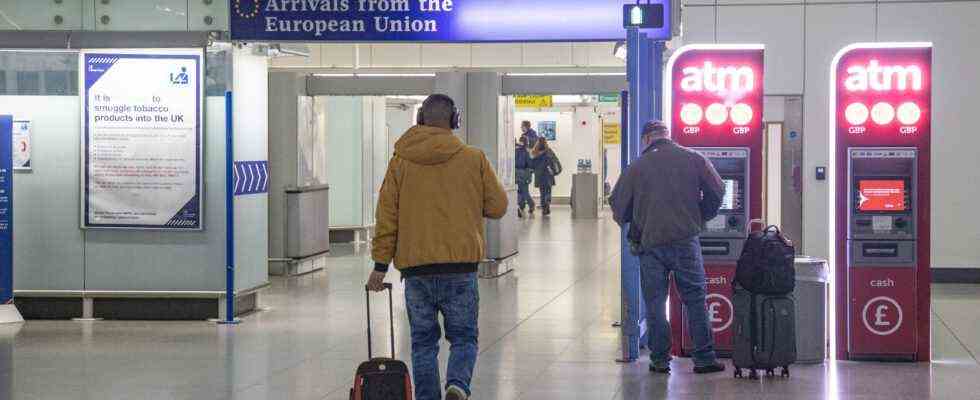As of: 06/30/2021 4:14 a.m.
Today is the last day for EU citizens to apply for a residence permit in the UK. Many employers are not yet able to cope with the new system. Applicants now fear that they will be disadvantaged.
From Christoph Prössl,
ARD studio London
Oliver Philips has lived and worked in England for years and has a German passport. On December 26, 2020, he applied for permanent residency in the UK – online. “On April 8th, 2021, I received an email confirming that my application had been received. And finally on April 19th, 2021 I received an answer confirming that I could stay in England,” he reports .
In the four months in between, Oliver Philipps, whose real name is different, was unable to ask anywhere about the status of the residence permit. Months in which it was not possible to prove to employers, banks or landlords, for example, that he was allowed to stay in the UK. Many applicants have experienced such delays in the complicated procedure.
5.6 million citizens from the European Union have applied for the so-called EU settlement program. Requirement: You must be able to prove that you lived in the UK before the end of 2020.
The system unsettles many employers
“Then we still have 400,000 EU citizens who are on hold. Some of them have been sitting there for months, for over a year and do not know exactly what is holding up their application,” reports Maike Bohn, co-founder of the association “The 3 Million “, a group that campaigns for the rights of EU citizens in the UK after Brexit. “And these people are also very, very worried about how things will look in practice from July 1st.”
The British government first had to set up a procedure for Poles, Germans, French and other EU citizens. Because there are no registration offices in Great Britain. The new system should only work digitally. No clerk at the counter, no stamp in the passport, no paper proof. Proof – for example when re-entering the country – should be purely digital.
In practice, this creates major problems, reports Bohn: Many employers cannot cope with the new system. “If you hold out a certificate like that, you might still not get the job. And there is a lot of discrimination because there is simply a lot of confusion here about how this new digital system actually works. We think that there is a lot of uncertainty for these 400,000 people , but also discrimination too. ”
Worry about the next trip abroad
The British government assures: Anyone who submits an application digitally before July 1st can be sure that it will be processed. In the past few days, thousands have signed up every day.
Bohn sees politics as hostile to migration: “Because no matter what a minister says, the whole system in Great Britain is designed to put the border inwards. Employers, universities, hospitals; they all have to check whether you can is legally in the country. ” Otherwise employers could face high fines, for example.
Philips perceives that the mood in society has changed with Prime Minister Boris Johnson’s policies: “In the last five years you have become much more racist in England,” he says. Philips is very happy to have his residence permit. Before the first trip abroad, however, he dreads it a little – who knows whether the digital system for verification will then work.

